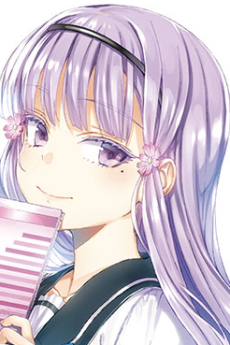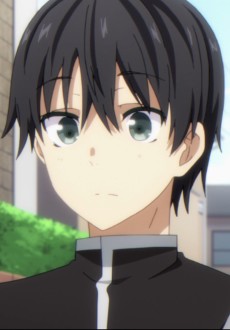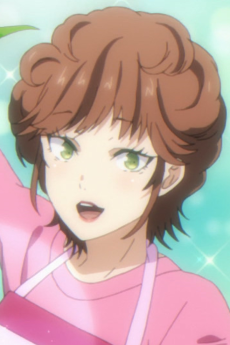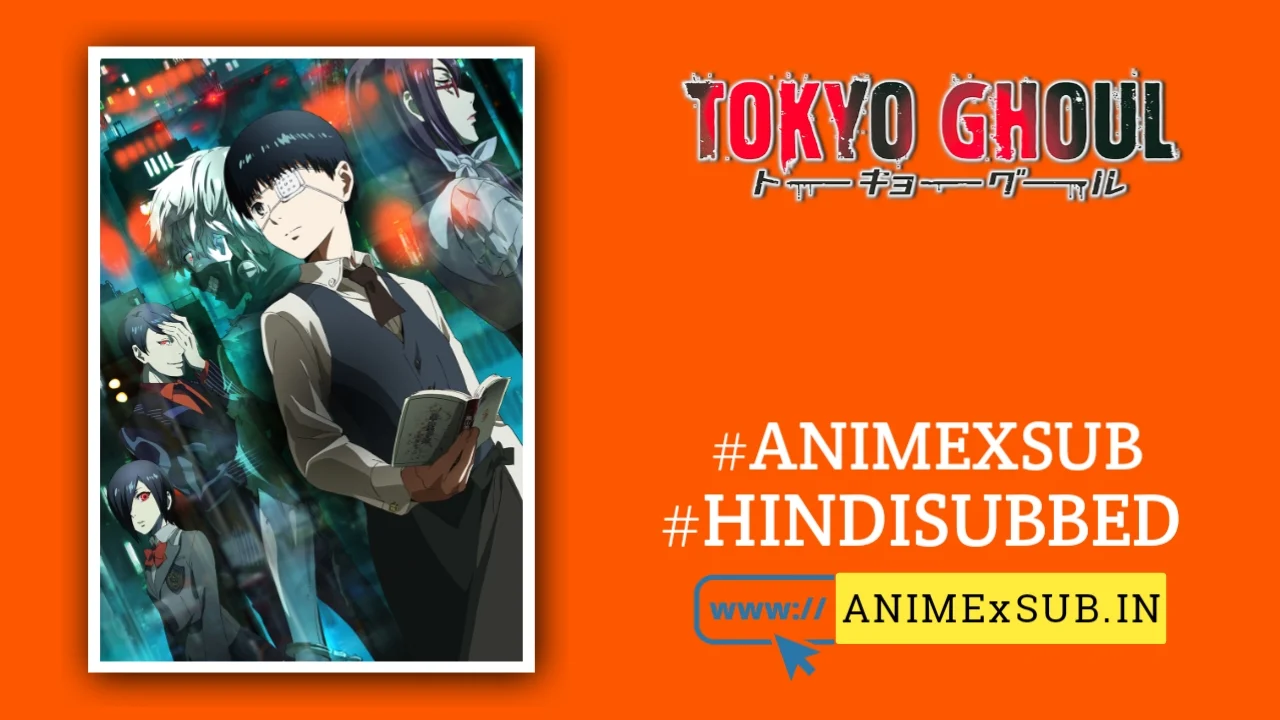
ORESUKI Are you the only one who loves me? Hindi Subbed [12/12] + [1/1] OVA {Complete}

Ore wo Suki nano wa Omae dake ka yo
ORESUKI: Are you the only one who loves me?Synopsis
Amatsuyu "Joro" Kisaragi finds himself in a rather delightful situation, two lovely girls asked him out on a date in the same week. Little does he know he's not the actual target of their love, instead, he ends up as a love consultant forced to juggle a web of relationships more complex than initially thought.
Watch Trailer
Characters
ORESUKI: Are You the Only One Who Loves Me? Season 1 – A Sharp, Subversive Rom-Com That Stumbles but Never Falls
ORESUKI: Are You the Only One Who Loves Me? (Season 1, 2019) is a bold, irreverent take on the harem rom-com genre that gleefully toys with clichés while delivering sharp humor and surprising emotional depth. This anime, adapted from Rakuda’s light novel and animated by Connect, follows Amatsuyu “Joro” Kisaragi, a seemingly average high schooler whose calculated facade as the “perfect guy” unravels in a whirlwind of manipulative schemes, misunderstood intentions, and a now-iconic park bench. Below is a detailed, spoiler-light analysis of why ORESUKI Season 1 stands out as a unique yet flawed gem in anime rom-coms, based on its narrative ambition, character dynamics, and technical execution.
A Genre Deconstruction with Bite
At its core, ORESUKI is a satire that flips the harem genre on its head. Joro, voiced with smarmy charm by Daiki Yamashita, isn’t the oblivious, saintly protagonist typical of harem anime. Instead, he’s a self-aware schemer who plays the “nice guy” to orchestrate his own romantic fantasy, only to be outmaneuvered by those around him. The show’s opening arc sets the tone: Joro expects confessions from his childhood friend Himawari and the student council president Cosmos, but their true intentions reveal a web of ulterior motives. This bait-and-switch, executed with razor-sharp pacing in the first three episodes, establishes ORESUKI as a parody that mocks the genre’s predictability while embracing its chaos.
What makes the narrative unique is its layered subtext. Every character hides their true motivations, creating a chess game of feints and reveals. The introduction of Sumireko “Pansy” Sanshokuin, a seemingly meek girl with a sharp tongue and obsessive streak, adds complexity. Her role as the “only one who loves” Joro subverts the harem trope of effortless adoration, forcing him to confront his own manipulative tendencies. The show’s self-awareness shines in moments like Joro’s fourth-wall-breaking monologues or the recurring “Bench-kun,” a literal park bench that becomes a humorous symbol of romantic failure.
However, ORESUKI’s ambition falters after its stellar opening. Around episode 4, the series struggles to maintain its subversive edge, slipping into the very clichés it mocks. The addition of new characters, like the energetic Asunaro and the enigmatic Hose, dilutes the focus, and the plot meanders into repetitive romantic stalemates. By the midpoint, Joro’s shift from cunning manipulator to indecisive everyman feels like a betrayal of the show’s initial promise. Fans on MyAnimeList noted this inconsistency, with reviews praising the first arc’s “Konosuba-like attitude” but lamenting how it “devolves into a generic harem” by episode 7.
Characters: Flawed, Unlikable, but Compelling
ORESUKI’s cast is its greatest strength and weakness. Joro is a fascinating anti-hero—his hypocrisy and flawed morality make him more relatable than the typical harem lead, yet his inconsistent characterization frustrates. Pansy, voiced by Haruka Tomatsu with a perfect blend of vulnerability and menace, steals the show. Her calculated unpredictability and emotional depth elevate her beyond the “best girl” stereotype, though her obsessive tendencies can feel exaggerated. Supporting characters like Himawari and Cosmos, while visually distinct and well-acted, often serve as plot devices rather than fully realized individuals, a flaw that becomes glaring in later episodes.
The ensemble’s dynamic thrives on mistrust and hidden agendas, creating tension that keeps viewers guessing. However, as reviews on Anime-Planet point out, the characters’ unrealistic behavior and “trashy teenage drama” can alienate those seeking deeper emotional resonance. The show’s attempt to balance cynicism with heartfelt moments—such as Joro’s part-time job struggles, which ground his character in relatable reality—sometimes feels tonally jarring.
Technical Brilliance and Humor
Visually, ORESUKI is a standout. Connect’s animation is vibrant, with expressive character designs by Shigenori Kageyama that amplify each personality—Pansy’s deadpan glares, Himawari’s bubbly energy, and Cosmos’s elegant poise. The show’s use of color and framing, particularly in dramatic confrontations, enhances the comedic and emotional beats. The soundtrack, while not memorable, complements the tone with quirky, upbeat tracks. Humor is the show’s strongest suit, blending ecchi gags, slapstick, and meta commentary. The recurring Bench-kun gags, dubbed a “pure endgame-level boss” by fans on AniList, are a stroke of absurdist genius.
Where It Shines and Stumbles
ORESUKI excels when it leans into its subversive roots. The first three episodes are a masterclass in pacing and payoff, with twists that feel earned rather than gimmicky. The show’s exploration of self-awareness and flawed relationships offers a fresh lens on the harem genre, making it a “hidden gem” for fans of sharp comedies like Konosuba or Yahari Ore no Seishun. Yet, its inability to sustain this momentum is its Achilles’ heel. The middle episodes drag with repetitive conflicts, and the resolution in episode 12 feels rushed, leaving some threads unresolved (though the OVA, Oretachi no Game Set, ties up loose ends). Fans on Rating Graph gave the season an average of 8.0/10, reflecting its strong reception tempered by divisive execution.
Final Verdict
ORESUKI Season 1 is a rollercoaster of brilliance and frustration. Its audacious deconstruction, sharp humor, and compelling anti-hero make it a must-watch for fans of genre-bending rom-coms. However, its inconsistent tone and slide into familiar tropes prevent it from reaching masterpiece status. For viewers willing to embrace its flaws, ORESUKI offers a refreshing, chaotic ride that roasts the harem genre while secretly loving it. Watch it for the laughs, stay for Pansy, and prepare to both cheer and groan.
Score: 7.5/10
Best Episode: Episode 3 – The payoff of the opening arc’s twists.
Who’s It For?: Fans of meta humor, complex protagonists, and rom-coms with an edge.
Support Our Anime Community!
Love watching the latest anime? Help us keep uploading new episodes by join telegram channel ❤️
Join Now!


















